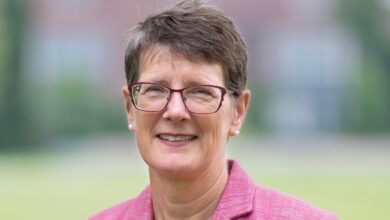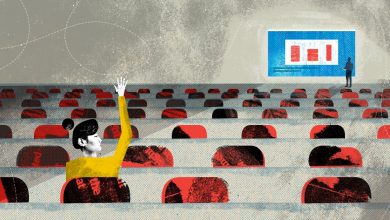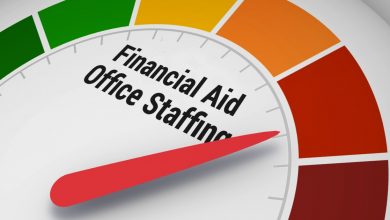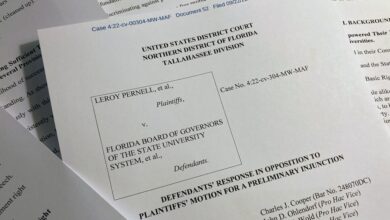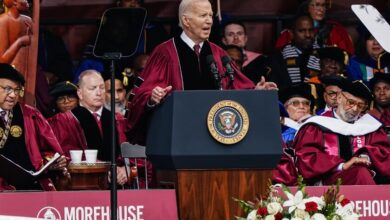Behind a U. of Florida Professor’s Plea to Testify Against the State
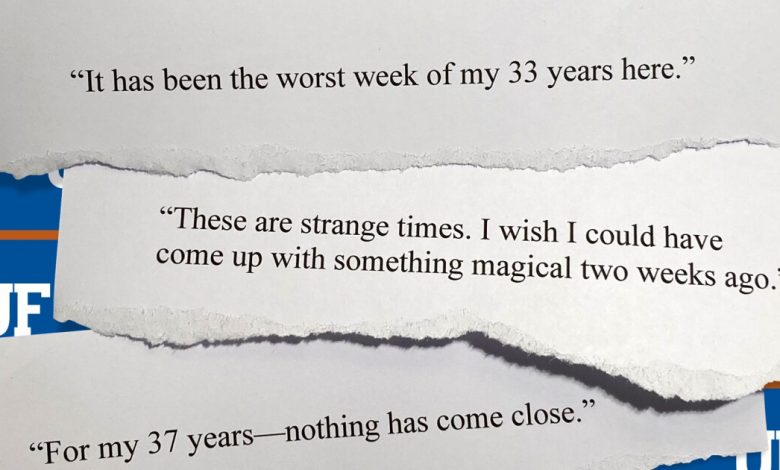
[ad_1]
Under a torrent of criticism for barring professors from testifying in a voting-rights case the University of Florida had an explanation: This wasn’t about free speech or academic freedom, university officials said in October; it was about professors doing outside paid work that was against the university’s interest. But what if a professor were to go on unpaid leave to do that work?
More than two weeks before the controversy spilled into public view, courtesy of The New York Times, one of the professors seeking permission to testify suggested to his dean that he step away without pay from his university duties to mitigate any conflict, emails obtained by The Chronicle show. On October 12, Michael McDonald, a political-science professor, laid out the suggestion to David E. Richardson, dean of the College of Liberal Arts and Sciences: “If my outside activity approval is denied,” McDonald wrote, “I would like to know my options, such as taking an immediate unpaid leave from the university during the duration of my participation in the litigation.”
The night before, McDonald explained, he had learned that the university had rejected a request from Daniel A. Smith, his colleague in political science, to serve as an expert witness in the same case. McDonald, whose research focuses on elections, told his dean he felt duty-bound to participate in the lawsuit brought by the League of Women Voters and other nonprofit organizations, who are challenging a new Florida law that critics say will make voting more difficult for poor people and minorities.
“I swore an oath to uphold the Florida constitution,” McDonald wrote, “and I therefore feel that it is my duty to be involved in this litigation to ensure that plaintiffs’ complaints have a fair hearing in court, a key foundation of our democratic principles as a nation.”
Richardson acknowledged the email and said he would get back to McDonald “asap.”
The next day, Gary Wimsett, the university’s assistant vice president for conflicts of interest, denied McDonald’s request to participate in the case. “As UF is a state actor, litigation against the state is adverse to UF’s interest,” Wimsett wrote.
McDonald says he never heard anything back about his proposal to take unpaid leave. (Richardson declined an interview request and did not respond to detailed questions about the emails.)
“I can confirm that I sent the email and that there was no communication to me in return from the university that explored any conflict-mitigation option; that is, until the story erupted in the press,” McDonald said in an email to The Chronicle on Tuesday.
On November 5, facing enormous public outrage, the university reversed course and said that McDonald, Smith, and Sharon Wright Austin, another political-science professor, were free to testify in the case regardless of compensation.
McDonald’s email, which has not been previously reported, is among 207 pages of documents provided to The Chronicle in response to a public-records request. The records, which include emails sent and received by Richardson during a critical period this past fall, provide a glimpse of the dean’s communications during a slow-building crisis that still reverberates.
By denying professors’ requests to testify in the voting-rights case, the university opened itself up to criticism that it had placed political considerations above academic freedom and free speech. McDonald and five other professors have sued the university, arguing that UF has violated their First Amendment rights. The case has triggered an investigation from a subcommittee of the U.S. House of Representatives and an inquiry from the university’s regional accrediting agency, the Southern Association of Colleges and Schools Commission on Colleges.
By any measure, what began as a bureaucratic discussion about a few professors’ expert testimony has morphed into something far more consequential. In his own communications, the dean appeared to recognize as much. On November 5, after the university reversed course and allowed the professors to testify, Richardson agreed with a faculty colleague who had described the preceding week to him as “the worst” she had experienced in her more than three decades at the university.
“Yes,” Richardson wrote. “For my 37 years ‐ nothing has come close. One day, sooner or later, there will be books about the era higher education is going through right now. I can imagine what will be in it, and more to come, no doubt.”
‘Consistency and Fidelity’
From the start of the controversy, university leaders appeared in public statements to walk a delicate line. In a joint statement on November 1, W. Kent Fuchs, the president, and Joe Glover, the provost, announced the appointment of a task force to review UF’s conflicts-of-interest policy “for consistency and fidelity.” At the same time, Fuchs and Glover appeared to suggest, obliquely, that all the breathless headlines about squelching free speech were overwrought.

Brad McClenny, The Gainesville Sun, USA TODAY NETORK
“As has already been reported by some news organizations,” the leaders wrote, “if the professors wish to testify pro bono on their own time, without using university resources, they are free to do so.”
The very next day, however, The Chronicle reported that a university professor and pediatrician had been blocked from testifying in a case challenging the state’s ban on mask mandates in schools — even though he would not have been paid for the work.
In October, when McDonald suggested he might take unpaid leave to work on the voting-rights case, he was teaching two courses, according to his email to Richardson. His work on the case, McDonald said, would be “relatively minimal” and “certainly no more burdensome than other prior approved outside activities.” (In his request to work on the case, McDonald said he expected the commitment would require two hours of work a week for “more than six weeks.”)
By going on unpaid leave, McDonald would be doing the work on his own time. But the university did not seem interested in a solution that would allow the professors to testify, McDonald said.
“After several attempts to privately reason with the university, it was only under intense scrutiny, after we went public, that the university offered the mitigation of us working on the case without compensation,” McDonald wrote in an email to The Chronicle on Tuesday. “Even then, our legal counsel had to send a formal letter to the university to learn that what was being said in the press was a bona-fide mitigation offer.”
In an opinion column for The Washington Post, McDonald and his colleagues argued that the university’s “shifting rationales” for blocking their testimonies pointed toward a singular conclusion: “In our view, all the rationales reveal is a fear of retribution from political actors for our testimony.”
In November, Fuchs accepted the task force’s recommendations that the policy be revised to reflect a “strong presumption” that the university will approve requests from faculty and staff members to testify as private citizens in litigation that involves the State of Florida, “regardless of the viewpoint” of the testimony. But that policy did not pass muster with a federal judge, who, in January, granted a preliminary injunction, ruling that the policy could not be enforced to block professors from testifying.
Steve Orlando, a university spokesman, did not respond directly to a question in an email on Tuesday, asking if UF had changed its conflict-of-interest policy or ceased enforcing it in response to the injunction.
“We don’t comment on matters involved in pending litigation,” Orlando wrote in response.
‘Unequivocally’ Supporting Free Speech
As chair of the political-science department, Smith’s request to testify went to the dean for approval. On two occasions, first on July 7 and again on October 11, Richardson rejected those requests, citing a potential conflict that the work could pose with “the executive branch of the State of Florida.”
When Fuchs, on November 5, reversed course, allowing Smith and others to testify, Richardson appeared to celebrate the change. The dean sent an email to his colleagues, saying that the college “continues to support unequivocally the foundational principles of free speech and academic freedom for its faculty.
“While I am pleased by the university’s decision, I also realize that this situation has been highly distressing for many faculty, students, and alumni of our college,” Richardson wrote.
Richardson forwarded the message to several people, including the college’s fund-raising team.
In subsequent private exchanges with faculty members, Richardson wrote that, while he was glad to see the decisions overturned, he had hoped something would have happened sooner.
“Only wish it was two weeks ago,” he wrote in an email.
“I wish I could have come up with something magical two weeks ago,” he wrote in another.
Two weeks earlier, on October 22, the three professors in Richardson’s college had already been rejected from giving testimony. But the controversy was still days from spilling into public view.
Upon receiving his email to the college’s faculty, on November 5, one professor pressed Richardson on why he had gone along with the denial in the first place. (While the debate ramped up in October, it was not widely known that Richardson’s involvement stretched back to July, when he had first denied Smith’s request to testify.)
“Thanks for this, Dave,” wrote Pamela K. Gilbert, an English professor. “But I can’t help wondering why YOU signed off on it? I was shocked and grieved to see your name and our college on the letter, as reported in multiple national news stories. What were you thinking and what has changed? I think we really need a full explanation at the College level to begin the slow process of restoring confidence. This has been horrific, and academics all over are asking me about it (and I am sure everyone else on the faculty).”
In response, Richardson wrote, “I understand. That will be explained eventually.”
Ten days later, on November 15, Richardson gave a further explanation. In a meeting of the College of Liberal Arts and Sciences Assembly, a shared-governance group, Richardson said that he had been “effectively informed” by UF’s central administrators to reject Smith’s proposal, The Chronicle previously reported. The specific language of the denial, which cited a conflict with the “executive branch,” had been provided by the general counsel’s office, the dean said. Mark Kaplan, vice president for government and community relations, provided the same language, Richardson told the group.
After news broke about the rejections, Richardson said he heard from colleagues who knew far more about conflicts of interest than he did. He decided to reverse his denial of Smith’s request, he said. Still, at the meeting with faculty, Richardson acknowledged that recent events had “shaken the trust that you have in me.”
Gilbert, the English professor who had pressed Richardson about his involvement, told The Chronicle on Tuesday that she appreciated the dean’s apology. But she sees a larger problem across the institution.
“I would assume the dean is doing his best at the college level,” she wrote in an email, “but no one in leadership seems to be able to fully take responsibility for protecting the university’s ability to run itself properly.”
As for the dean, Richardson seemed to have a notion in November that the aftershocks of this controversy were far from over. In an email to a colleague, he predicted, “The echoes of this will continue for some time.”
Lindsay Ellis contributed to this report.
[ad_2]
Source link


